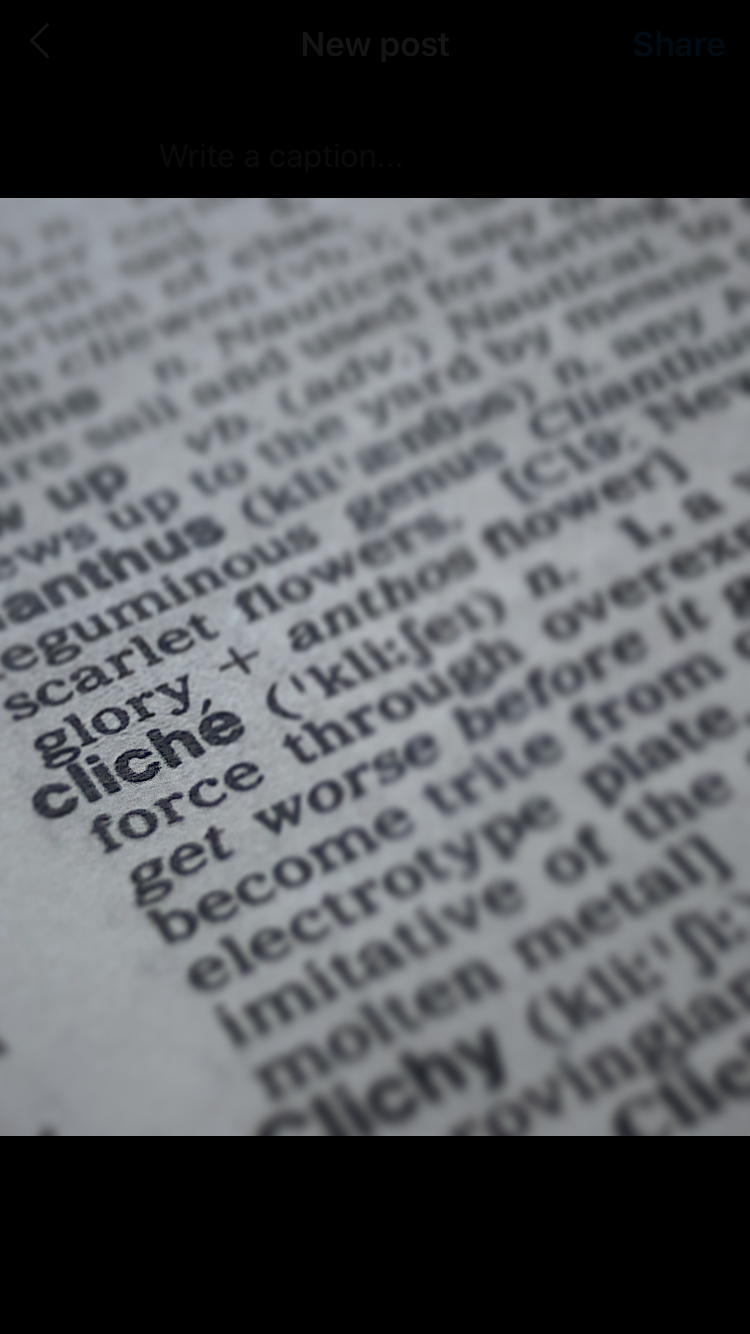What is a cliché?
It’s simply a phrase or saying in frequent usage, easily recognised and understood. We use them all the time in conversation and avoiding them would result in a rather affected manner of speaking.
Writers become deeply concerned about clichés and see them as a deadly sin. And yet in our newspapers, we find them scattered like confetti – that’s a cliché by the way, but we all know what it means. I could have said that they are to be found randomly distributed within the text of most newspaper articles. But scattered like confetti is much more visual. It has been over-used for a reason. It’s been over-used because it has meaning.
I wonder why we have all become so super sensitive about clichés. Perhaps it’s the fault of the professional and non-professional critiquer. It’s so easy to pick one out of an excellent piece of writing and say disparagingly, “a pity about that cliché in the first sentence.” To me one cliché on a page is nothing to get upset about. It’s when there’s one in every paragraph that it can become distracting.
A particular cliché can become irritating when it gets too much exposure. Politicians are guilty of using expressions like “hard working families” until the phrase begins to lose its meaning. Too many clichés can be indicative of sloppy or lazy writing. It can mean the writer hasn’t taken the trouble to seek out a more original or apt analogy. However, avoiding them altogether can result in writing that is less explicit and less accessible. Certainly clichés should be allowed their place in dialogue because an attempt at eliminating them will result in conversation that is stiff and wordy.
Writing is all about communication and as long as we are communicating in a way that the reader understands, it’s serving its purpose. We all know not to judge a book by its cover and that it’s little use flogging a dead horse. How sad if writers were to avoid these picturesque expressions and allow them to die out of common usage. Sometimes it’s possible to be too clever by half!
These expressions are a sort of shorthand. They say a lot in a few words. We shouldn’t sneer at the hard-working cliché when it is conveying exactly what we want to say. Of course, we should look for new and original ways of expressing what we mean, but beware, if successful, that clever phrase may soon become a cliché.
